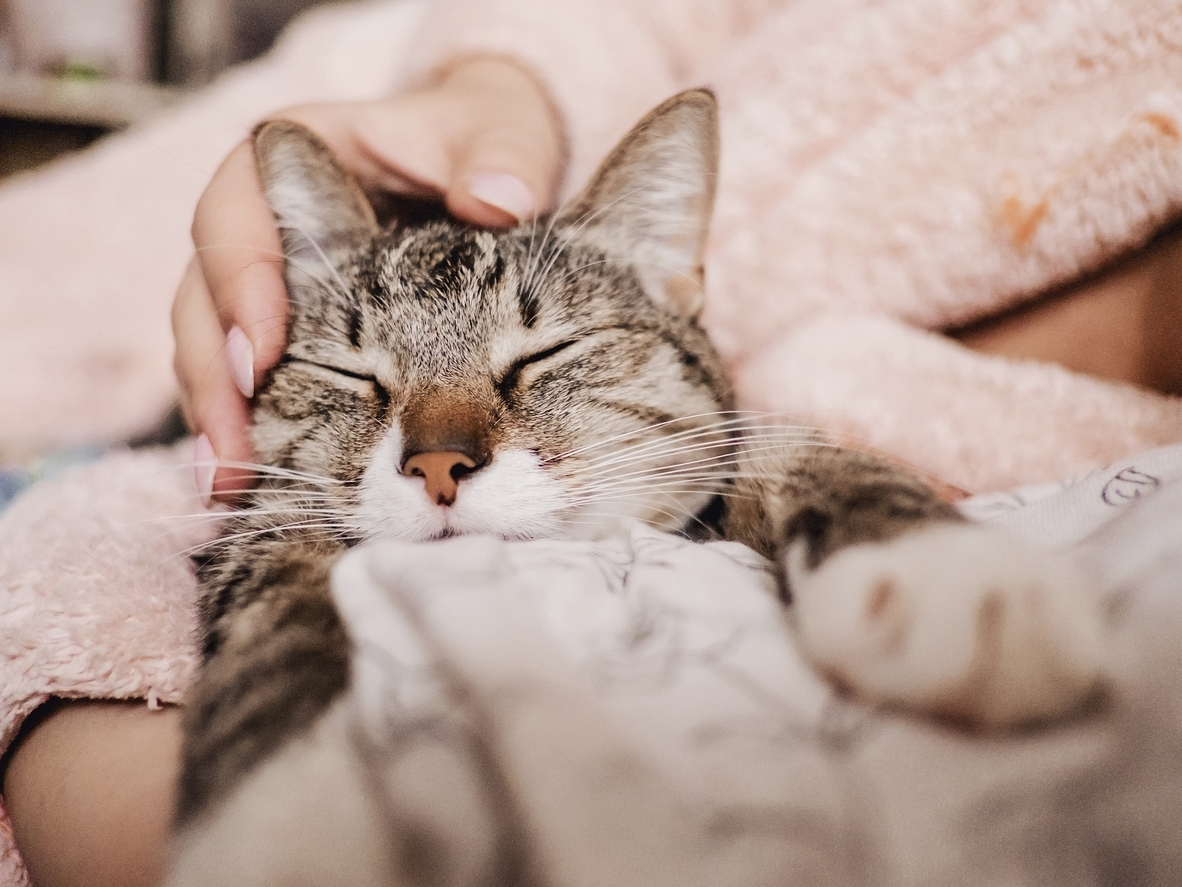How to Help Your Pet Get The Most Sleep
Written by: Jackie Kepler
Everyone needs sleep — even pets. You might think your pet’s sleep needs are similar to yours (as they may do most of their sleeping when you do), but the fact is animals have unique sleep needs and sometimes need help getting all of the rest they need.
The good news is animals are often flexible sleepers. They can adjust their schedule to sleep when you’re resting, out of the house, or otherwise not likely to engage with them. But even flexible sleepers can struggle to sleep well sometimes, and you can offer help as a pet parent.
How Much Sleep Pets Need
While most adult humans need somewhere in the neighborhood of eight hours of sleep each night, you can count on pets such as cats and dogs needing at least 12 hours of sleep. But it doesn’t necessarily all happen at night.
Dogs often have a sleep schedule similar to human toddlers. They need about 12 to 14 hours of sleep each 24 hour period. However, puppies or elderly dogs, extremely active dogs or large breeds may need more than that. They may consolidate most of their sleep at night during your rest period, then make up the rest of their sleep needs with daytime naps.
Cats are known for their naps, and for a good reason: The average cat sleeps between 12 to 16 hours each day (more for kittens and elderly cats). And with that much sleeping, there’s bound to be plenty of daytime napping. Like dogs, cats may adjust their schedule to yours. But generally, you can expect cats to be most active at dawn and dusk.
How to Help Pets Sleep Well
Pets may not need your help to sleep well. They may be able to rely on natural instincts and manage their own sleep needs. But if you notice your pet sleeping less than usual or acting tired while not getting the rest they need, you might need to intervene.
- Offer a healthy diet. Sleep and overall health go hand in hand. Eating junk food or a meal that’s too large before bed can make it tough for pets to get to sleep, so feed them an appropriate amount at a time that’s early enough to give them a couple hours to digest before they should go to sleep for the night.
- Make sure they’re active. Wearing your pet out during the day can make for a night of more restful sleep. Offer regular physical activity, stimulation, and attention during the day.
- Give them a healthy place to sleep. Like any member of the family, your pet needs a bed where they can rest and feel comfortable. Consider their needs and offer a bed that will help them sleep well at night.
- Take care of their needs before you go to sleep. Pets may lie awake at night needing to go out to use the bathroom, hungry for a snack, or just wanting attention. Before you head off to bed, take some time to connect and make sure you’ve met their needs so they can rest without interruption.
As flexible sleepers with natural instincts, you shouldn’t be overly concerned with your pet’s sleep, but too little or too much could indicate a problem that needs addressing. If you’re worried about how much your pet is sleeping, talk to your vet about their sleep patterns and offer support for healthy sleep.
Jackie Kepler is a MattressReviews.net sleep professional. She enjoys sleeping with cats, but sleeps on a king size bed because she needs her space, too.




